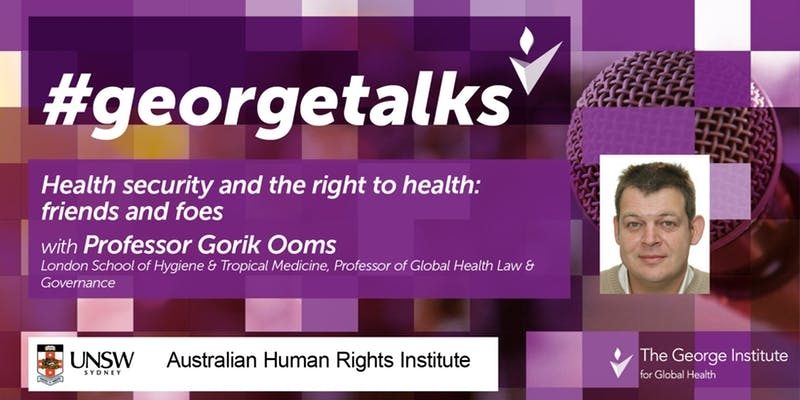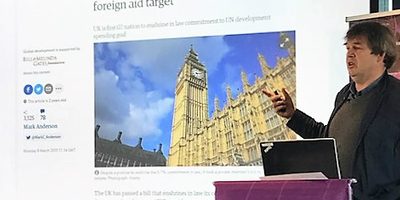
Global health security and the right to health: friends and foes

Join us at this co-hosted #GeorgeTalks with UNSW Australian Human Rights Institute.
Register for Free
The right to health is not a 'right to be healthy', but shorthand for a basket of freedoms and entitlements that protect or promote a person’s health.
The efforts required to promote 'global health security'– or protection from health crises that cross international boundaries – are also required to realise the right to health.
My right to health includes an entitlement to efforts from my society to protect me against infectious diseases. In that sense, global health security and the right to health are friends.
However, the right to health is much broader than the efforts required to promote global health security. Global health security and the right to health can be foes: when poorer countries prioritise right to health efforts that do not contribute to global health security, while wealthier countries want them to prioritise global health security.
Broad definitions of global health security and the right to health can help to overcome tensions between both, but they also tend to obscure the non-aligned interests in international cooperation for global health.
Professor Gorik Ooms: London School of Hygiene & Tropical Medicine
Gorik Ooms is a human rights lawyer and a global health scholar, Professor of Global Health Law & Governance at the London School of Hygiene & Tropical Medicine, Adjunct Professor at the Law Faculty of Georgetown University, and Visiting Professor at the Faculty of Medicine and Health Sciences of Ghent University. Between 1990 and 2008, he worked with Médecins Sans Frontières Belgium in different positions, and as Executive Director from August 2004 until June 2008. He is one of the co-chairs of the Lancet Commission on a synergistic approach to universal health coverage, health security, and health promotion. Gorik Ooms’ research focuses on the use of international law (human rights law and other law) as a tool to regulate states’ behaviour that influences global health problems, and as an expression of common human values. He was one of the experts in international law and human rights who elaborated and adopted the Maastricht Principles on Extraterritorial Obligations of States in the area of Economic, Social and Cultural Rights.


